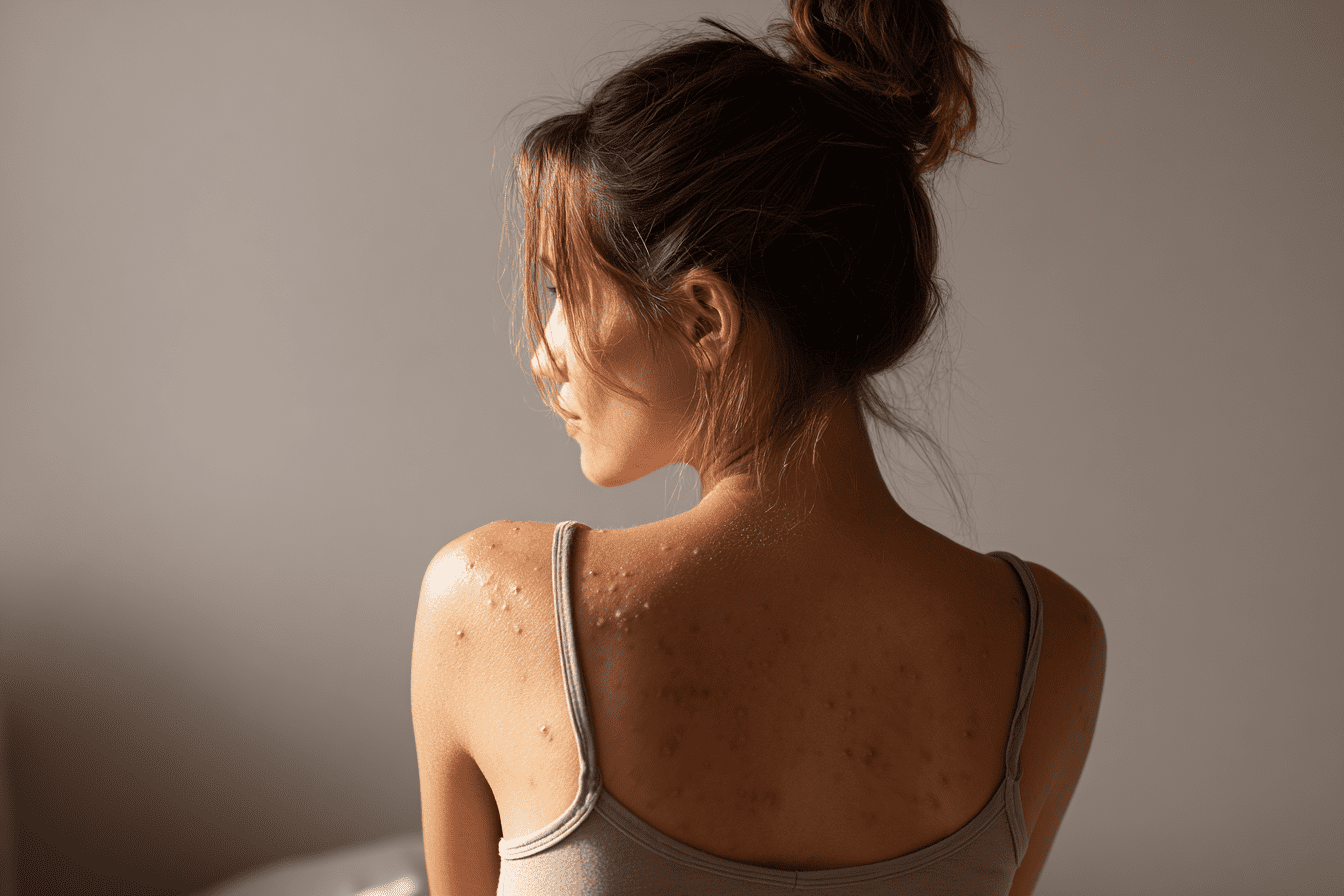I remember the frustration of stubborn breakouts on my skin. I tried hard to keep it clear. If you’re like me, you’ve struggled with hormonal fluctuations that mess up your skin.
Hormonal body acne is common, affecting adults of any age. It’s not just about looks. It’s about feeling good in your own skin.
This guide will help you understand and fight hormonal body acne. We’ll use simple, effective strategies.
Key Takeaways
- Understand the causes of hormonal body acne
- Learn effective treatments, including topical and oral medications
- Discover natural remedies to complement your treatment
- Develop a personalized plan to achieve clear skin
- Maintain healthy, acne-free skin with long-term strategies
Understanding What Causes Hormonal Body Acne
Knowing why hormonal body acne happens is key to treating it. Hormonal changes, like those in women, can cause acne. This includes changes during menstruation, menopause, polycystic ovarian syndrome (PCOS), and stress.
Hormonal shifts can make more sebum, clog pores, and let bacteria grow. Androgens, like testosterone, make more sebum by telling the sebaceous glands to work harder.
Androgens are the main hormones that cause acne. They make cells turn over faster and produce more sebum, blocking pores. Estrogen and progesterone also affect the skin, but in more complex ways.
Cyclical Patterns in Hormonal Breakouts
Many women get acne in a cycle that matches their menstrual cycle. Knowing these patterns helps predict and manage breakouts. For example, some women get acne before their period because estrogen levels drop.
My Personal Battle with Hormonal Body Acne
I fought hormonal body acne for years. I tried many remedies but didn’t see much change. Breakouts would pop up without warning, leaving scars.
First, I learned what caused my acne. I found out hormonal changes played a big role. This made me look for hormonal acne remedies to balance my skin.
I tried many treatments, from creams to changing my diet. It took time to find what worked. But, I did find a mix that helped control my acne.
I want to help others with similar struggles. Fighting hormonal acne takes patience and persistence. Finding the right remedy can take time.
How to Identify If Your Body Acne Is Truly Hormonal
Figuring out if your body acne is hormonal is easy. Just watch when and where it happens. Hormonal acne often shows up at the same time every month.
Timing of Breakouts Related to Your Cycle
Look at when your acne shows up. If it’s always at the same time, it might be hormonal. For many women, acne gets worse before or during their period. This is because of changes in estrogen and progesterone levels.
Location Patterns Specific to Hormonal Acne
Where your acne is can also tell you something. Hormonal acne usually pops up on the lower face, neck, chest, and back. Paying attention to these spots can help you figure out if your acne is hormonal.
- Observe if your acne follows a monthly cycle.
- Note the areas of your body where acne occurs.
- Consider keeping a skin diary to track changes.
By noticing these signs, you can start to find ways to stop your body acne. If you’re not sure, talking to a dermatologist can help a lot.
Creating an Effective Daily Routine for Hormonal Body Acne
To fight hormonal body acne, make a daily skincare plan that fits you. Know your skin type, pick the right products, and follow steps to control acne.
Cleansing your skin is key. Wash your body twice a day with a gentle cleanser to get rid of dirt and bacteria. Look for cleansers with salicylic acid or benzoyl peroxide for their acne-fighting powers.
Also, clean your skin after working out. Sweat and dirt can clog pores and cause breakouts. Keep cleansing wipes in your gym bag for quick skin cleaning when you can’t shower right away.
Products to Keep in Your Gym Bag: Quick Cleansing When You Can’t Shower
When you can’t shower after working out, having the right stuff is important. Here are some must-haves for your gym bag:
- Cleansing wipes
- Antibacterial body spray
- Oil-free moisturizer (if needed)
| Product | Benefit |
|---|---|
| Cleansing Wipes | Quickly removes sweat and dirt |
| Antibacterial Body Spray | Helps prevent bacterial growth |
| Oil-free Moisturizer | Hydrates without clogging pores |
By using these products and steps in your daily routine, you can manage hormonal body acne better. This will improve your body acne skincare.
Topical Treatments That Actually Work for Hormonal Body Acne
Managing hormonal body acne starts with the right treatments. Certain ingredients can really help.
Hormonal acne treatment often begins with topical treatments. Look for salicylic acid and benzoyl peroxide. Salicylic acid exfoliates and unclogs pores. Benzoyl peroxide kills acne-causing bacteria.
Ingredients to Look For
When picking a treatment, search for salicylic acid, benzoyl peroxide, or tea tree oil. These fight hormonal body acne well.
- Salicylic Acid: Helps exfoliate and unclog pores.
- Benzoyl Peroxide: Kills acne bacteria.
- Tea Tree Oil: Has antibacterial properties.
Products to Avoid That May Make Things Worse
Not all products help with body acne management. Some can make it worse. Avoid harsh chemicals, artificial fragrances, and ingredients that clog pores.
Choosing the right treatments and watching what’s in them helps manage acne. Be consistent and patient. Finding the right product might take some time.
Sticking to a routine and being gentle with your skin helps a lot. Always check labels. Choose products labeled “non-comedogenic” or “oil-free” to avoid clogged pores.
Dietary Changes That Can Help Control Hormonal Breakouts
I found out that changing what I eat really helps with hormonal acne. The foods we eat affect our hormones and skin.
Some foods can make acne worse. We should watch our dairy, sugar, and refined carbs.
The Dairy Connection
Dairy has hormones that can make our skin oilier. Not eating dairy can help with acne.
Sugar and Refined Carbs Impact
Too much sugar and carbs can mess with our hormones. Eating better foods helps keep our blood sugar right and reduces acne.
Making diet changes is easy and works. Start by keeping a food diary. Then, eat more whole foods and less dairy and sugar.
These diet changes can help a lot with acne. You can get clearer, healthier skin.
Lifestyle Modifications to Balance Your Hormones Naturally
Making some simple changes in your life can really help with hormonal acne. These changes can help balance your hormones and lower acne.
One key change is to make your sleep area better. Adequate sleep is essential for hormone regulation. A good bedtime routine tells your body it’s time to sleep.
Creating the Ideal Sleep Environment
To make a great sleep area, think about these:
- Keep your bedroom cool, dark, and quiet.
- Invest in a comfortable mattress and pillows.
- Use blackout curtains or blinds to block out any light.
Bedtime rituals are also key for hormone health. Do relaxing things like reading, meditation, or deep breathing before bed. This calms your mind and body.
Other lifestyle changes can also help balance hormones. These include eating well, drinking plenty of water, and managing stress.
By making these changes, you can fight hormonal acne and feel better overall.
Medical Interventions for Stubborn Hormonal Body Acne
If you’ve tried everything and your body acne won’t go away, it’s time to see ahormonal acne specialist. For really bad cases, you might need to see a doctor. They can give you special advice and treatments just for you.
When you see ahormonal acne specialist, they will look at your skin and health history. They will talk to you about your skin and family health. They might also do tests to find out what’s causing your acne.
Questions to Ask Your Doctor, What to Expect During Treatment
Before you go, make a list of questions for your doctor. Some important ones are:
- What are the possible causes of my hormonal body acne?
- What treatment options are available, and which do you recommend for me?
- Are there any possible side effects or risks with the treatment you suggest?
- How long will it take to see results from the treatment?
- Are there any lifestyle changes or skincare routines that I can adopt to support my treatment?
During your treatment, you’ll see your dermatologist often. They will check how you’re doing and change your plan if needed. They might give youhormonal acne treatmentlike pills, hormones, or special creams to help your acne.
Be patient and stick to your treatment plan. It might take some time to see changes. But with the right help, you can get clearer, healthier skin. By working with ahormonal acne specialist, you can make a plan to fight your acne and feel better.
Natural Remedies and Supplements I’ve Found Effective
I tried many things to fight hormonal acne. Some natural remedies and supplements really helped. My journey to clear skin was tough, but these solutions made a big difference.
Spearmint tea was a game-changer for me. Studies say it lowers androgen levels. This means less sebum and less inflammation. I’ve seen fewer breakouts thanks to spearmint tea.
Spearmint Tea and Its Benefits, DIM, Zinc, and Other Helpful Supplements
I also found some supplements to be very helpful. DIM (Diindolylmethane) helps balance estrogen levels. This can help with hormonal acne. Zinc is great too. It boosts the immune system and fights inflammation.
Omega-3 fatty acids and probiotics are also good. Omega-3s reduce inflammation. Probiotics keep the gut healthy. A healthy gut is key for hormone balance and skin health. Adding these to my routine improved my skin a lot.
Remember, everyone’s skin is different. What works for me might not work for you. But trying these natural remedies and supplements can help a lot.
Conclusion: Maintaining Your Results and Embracing Clearer Skin
Clearing hormonal body acne takes hard work and patience. But the clear skin you get is worth it. To keep your skin clear, always follow a good skincare routine.
Keeping up with treatments, like creams or healthy food, helps a lot. These, along with a healthy lifestyle, can make your skin clearer. This way, you can fight off hormonal body acne better.
Every person’s skin is unique. You might need to try a few things to find what works for you. Keep going, even when it’s tough. With the right steps, you can have healthier, clearer skin.





